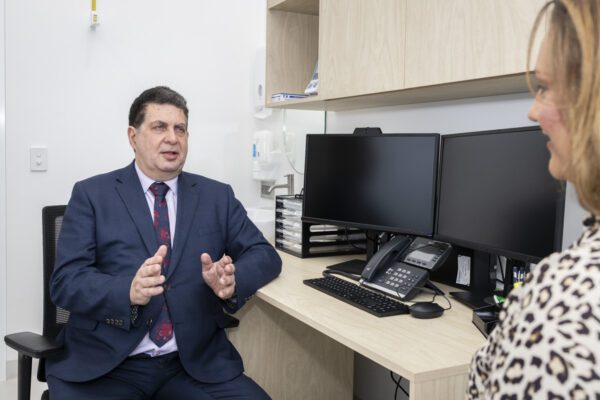Mental illness and suicide costs Australia a conservative $220 billion a year or $600 million every day, according to a Productivity Commission Report released in November 2020.
This estimate is more than a 10th of Australia’s entire economic production in 2019, said Australian Prime Minister Scott Morrison in his speech outlining the report’s findings to Parliament.
The report was commissioned prior to the additional challenges of COVID-19 pandemic, so this figure is now seen as wildly conservative when trying to estimate the economic impact of mental health.
With mental illness affecting almost half of the Australian population at some point during their lives and one in five Australians in any given year, what is the cost of poor mental health to individuals, the community, and the economy?

What is the cost of mental health?
The costs of mental illness are many and varied. For some, it may take the biggest toll on family members and for others, it may be on their work. The Banyans Health and Wellness Chief Executive Officer Ruth Limkin says this report shines a much-needed light on the mental health of Australians and its consequences.
“It is important to understand that mental illness is not a moral failing. Mental illness doesn’t discriminate – it can take hold of anyone at any time. Australians are facing real consequences because of the current approach to mental health,” Ruth says.
“Australia, we can do better. We must do better. It’s a complex problem and no easy answers, but the human cost demands we never give up. Absolute persistence is required.”
Cost to yourself
There is no doubt that mental illnesses are debilitating to their sufferers. Whether it’s anxiety, depression, bipolar disorder, or obsessive compulsive disorder, these chronic conditions can often lead to poor self-esteem, disruption to education and employment, relationship stress or breakdown, public stigma, and loss of opportunities and life satisfaction. Recovery can be prolonged and in some cases, management of these conditions can be lifelong.

The Productivity Commission Report highlighted the need for early intervention, increased community treatment, greater integration with hospital providers, and greater treatment choices for those who need it.
Related: Signs and symptoms of depression
Related: Recognising anxiety: signs and symptoms of anxiety
Cost to your family
More often than not, the people close to us will feel the effects of mental illness as they step up as a temporary carer for a family member or offer emotional or financial support for a loved one as they reach out for help.

They may find themselves experiencing feelings of isolation, chronic stress, and burnout and realise there is very little support available to them as they take on these roles. Their critical role in the recovery of the affected person may not be valued by society and this takes its own toll. Often, their input is not sought and their position is not considered as treatment options are discussed.
However, the impact that family has on the recovery journey cannot be understated and more recognition is needed of this important role.
Related: Family support is crucial to recovery
Related: Friends and family coaching packages
Cost to your work
With one in five Australians taking time off work in the past 12 months due to stress, anxiety, depression or mental illness, it’s time to start the conversion about workplace wellbeing.
Workplace wellbeing has become a buzz word in recent years, but what does it really mean? Workplace wellbeing is not just putting on the occasional corporate morning tea for the team – it is an active, continued, and habitual dedication to staff that serves to create a mentally healthy work environment.
While many of the factors leading to workplace wellbeing are a result of work design and culture, building our own personal resilience and work routine can be just as important. This can mean finding a better balance between work and leisure by turning off notifications at a certain time of day, not doing work in your bedroom, or getting in at least some physical activity every day. It may feel like an almost insurmountable task to find that illusive work-life balance, but every small change adds up when it comes to building wellness in the workplace.

For managers and business owners, research published by Deloitte found every $1 invested in workplace mental health returns $5 in reduced costs and improved productivity. With a 500% return on investment, the smartest investment you can make is investing in the wellbeing of your staff.
Related: Does your job feel like a chore?
Cost to the economy
“Australia’s current mental health system is not comprehensive and fails to provide the treatment and support that people who need it legitimately expect,” according to The Productivity Commission Report.
The Banyans was established in 2016 to address this exact issue. Our founding team recognised there were significant gaps when it came to the provision of comprehensive, multidisciplinary, team-based, evidence-based mental health treatment.
Our practitioners recognise the need to work together to achieve successful outcomes. Every aspect of a person’s recovery is addressed through our biopsychosocial treatment programs – the complex interactions between a person’s biological, psychological, and social attributes are all considered in order to optimise the chances of recovery.
Our outcomes illustrate the integrity of this approach – residents have shown an average improvement of 74% in their dependency measures after completion of a program.
The Banyans strives to provide excellence in care in order to play our part in reducing the cost to individuals, community, and the economy of mental health conditions and substance dependency.
For more information about our programs, call us on 1300 BANYAN (1300 226 926) or complete an online form for a confidential discussion about how you or someone you care about can benefit from The Banyans.





